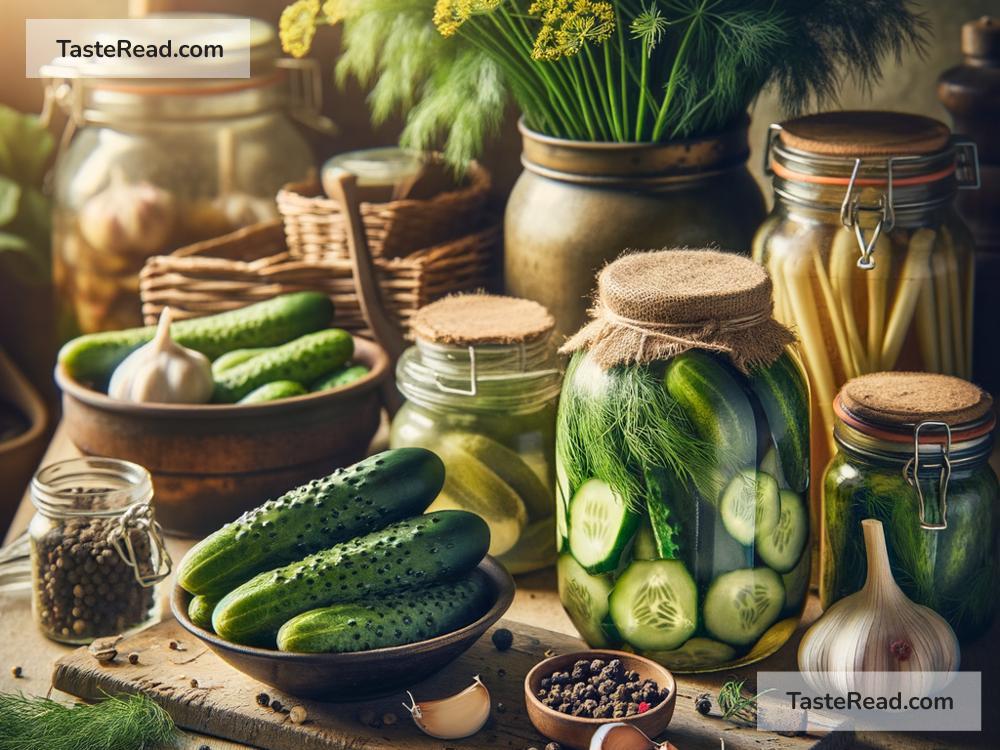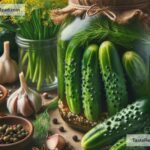Why Dill Is Essential in Pickling Recipes
Pickling is one of the oldest methods of preserving food, and for centuries, people have been turning cucumbers, carrots, and other vegetables into deliciously tangy treats by soaking them in brine (a salty vinegar solution). If you’ve ever bitten into a classic dill pickle and wondered what makes it taste so unique and crave-worthy, you’re not alone! The secret lies in the herb known as dill. Dill is more than just an ingredient in pickling recipes—it’s an essential part of the magic. In this blog, we’ll explore why dill plays such a vital role in making pickles flavorful, fragrant, and irresistible.
1. Dill’s Signature Flavor Enhances Pickles
Dill is famous for its fresh, herbal taste with hints of citrus and sweetness. This flavor profile pairs beautifully with the tangy, sour notes of pickled vegetables. Without dill, many pickling recipes would taste flat or overly vinegary. The herb’s bright and nuanced flavor balances the brine, creating the perfect harmony of salty, sour, and savory.
When you add dill to a pickling recipe, its oils and aromas infuse into the vegetables during the pickling process, which can take days or weeks depending on the recipe. This is why dill pickles have their distinct “zing”—it’s the herb’s contribution to the recipe that sets it apart from other types of pickled foods.
2. Dill Elevates Pickling with Its Fragrance
One of the reasons dill is so iconic in pickling is its unmistakable aroma. Fresh dill has a clean, earthy scent that works wonders in brine mixtures. When you open a jar of dill pickles, the first thing you notice is the herb’s fresh smell filling the air. This fragrance isn’t just pleasant—it’s also important for enhancing the overall experience of eating pickles.
Dill’s natural oils (called essential oils) are responsible for its fragrant qualities. These aromatic compounds release into the brine as the pickles soak, infusing the vegetables with a subtle yet unmistakable freshness. Dill not only tastes great but also smells amazing—two key factors that make pickling recipes irresistible.
3. Dill Adds Visual Appeal
Dill doesn’t just contribute flavor and aroma—it also looks fantastic! Whether you toss whole dill sprigs, feathery fronds, or dried seeds into a pickling jar, they add beautiful decoration to the finished product. The vibrant green hue of fresh dill contrasts with the pale color of pickling brine and light-colored vegetables like cucumbers.
Pickled foods are often displayed in clear glass jars to showcase their appetizing appearance. Dill’s eye-catching texture and color help make the pickles look even more tempting and homemade. Food doesn’t just feed the stomach—it feeds the eyes, and dill ensures your pickled creations are as appealing visually as they are delicious.
4. Dill Contains Beneficial Compounds
Dill isn’t just flavorful—it’s also healthy! This herb is rich in antioxidants and nutrients such as vitamins A and C, which support your immune system, promote healthy skin, and fight free radicals in your body. It even has a long history of being used for natural remedies, including soothing digestion and fighting inflammation.
While pickling brine itself contains salt and vinegar, which are less nutritious in large quantities, adding dill to recipes balances things out with its health-boosting properties. Although you probably won’t eat dill pickles specifically for their vitamins, it’s nice to know that one of their essential ingredients comes with added benefits for your well-being.
5. Dill Complements Other Pickling Flavors
The beauty of dill is how well it complements other common pickling ingredients. Many recipes call for garlic, mustard seeds, peppercorns, or spices like cloves and bay leaves. Dill’s mild but distinct flavor blends seamlessly with these bold, zesty additions.
For example, garlic adds a punchy kick, while mustard seeds provide warmth and texture. Dill helps balance these elements by introducing light, refreshing notes. The herb creates a flavor bridge, ensuring that all the other ingredients don’t overpower but instead enhance each other. This balancing effect is another reason why dill is essential in pickling.
6. Dill Pickles Are Everyone’s Favorite
Let’s be honest—when most people think of pickles, they picture dill pickles. There’s something universally appealing about the way dill transforms cucumbers into crunchy, tangy, and flavorful snacks. Whether you’re topping a sandwich, enjoying them as a snack, or serving them alongside barbecue dishes, dill pickles simply belong.
Without dill, pickling wouldn’t be quite the same. Dill pickles have become a classic in cuisines worldwide, demonstrating the herb’s importance not only in recipe creation but also in the broader culture of pickling.
Conclusion: Dill Is a Pickling Superstar
Dill is more than just an herb—it’s the heart and soul of many pickling recipes. Its flavor, aroma, visual appeal, and health benefits elevate simple pickled vegetables into something extraordinary. It balances the tangy brine and enhances other spices, ensuring each mouthful is a perfect bite of herbal freshness and sour tang.
So, next time you make pickles, don’t underestimate the power of dill. Whether you grow it fresh in your garden or buy it from the store, this vibrant herb is the secret ingredient that transforms your pickling recipes into the best pickles you’ve ever tasted. Dill truly deserves its place as the essential companion to the art of pickling!


